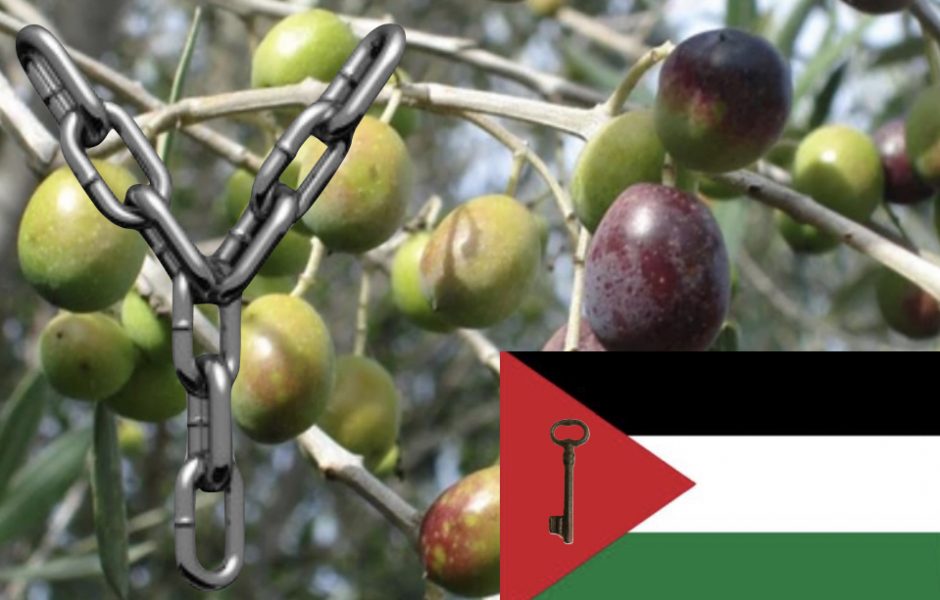
Source:
https://www.btselem.org/topic/apartheid
21 January 2021
The Israeli regime enacts in all the territory it contols (Israeli sovereign territory, East Jerusalem, the West Bank, and the Gaza Strip) an apartheid regime. One organizing principle lies at the base of a wide array of Israeli policies: advancing and perpetuating the supremacy of one group – Jews – over another – Palestinians.
B’Tselem rejects the perception of Israel as a democracy (inside the Green Line) that simultaneously upholds a temporary military occupation (beyond it). B’Tselem reached the conclusion that the bar for defining the Israeli regime as an apartheid regime has been met after considering the accumulation of policies and laws that Israel devised to entrench its control over Palestinians.

The key tool Israel uses to implement the principle of Jewish supremacy is engineering space geographically, demographically and politically. Jews go about their lives in a single, contiguous space where they enjoy full rights and self-determination. In contrast, Palestinians live in a space that is fragmented into several units, each with a different set of rights – given or denied by Israel, but always inferior to the rights accorded to Jews.
The Israeli regime pursues this organizing principle in four major areas:
- Land – Israel works to Judaize the entire area, treating land as a resource chiefly meant to benefit the Jewish population. Since 1948, Israel has taken over 90% of the land within the Green Line and built hundreds of communities for the Jewish population. Since 1967, Israel has also enacted this policy in the West Bank, building more than 280 settlements for some 600,000 Jewish Israeli citizens. Israel has not built a single community for the Palestinian population in the entire area stretching from the Mediterranean Sea and the Jordan River (with the exception of several communities built to concentrate the Bedouin population after dispossessing them of most of their property rights).
- Citizenship – Jews living anywhere in the world, their children and grandchildren – and their spouses – are entitled to Israeli citizenship. In contrast, Palestinians cannot immigrate to Israeli-controlled areas, even if they, their parents or their grandparents were born and lived there. Israel makes it difficult for Palestinians who live in one of the units it controls to obtain status in another, and has enacted legislation that prohibits granting Palestinians who marry Israelis status within the Green Line.
- Freedom of movement – Israeli citizens enjoy freedom of movement in the entire area controlled by Israel (with the exception of the Gaza Strip) and may enter and leave the country freely. Palestinian subjects, on the other hand, require a special Israeli-issued permit to travel between the units (and sometimes inside them), and exit abroad also requires Israeli approval.
- Political participation – Palestinian citizens of Israel may vote and run for office, but leading politicians consistently undermine the legitimacy of Palestinian political representatives. The roughly five million Palestinians who live in the Occupied Territories, including East Jerusalem, cannot participate in the political system that governs their lives and determines their future. They are denied other political rights as well, including freedom of speech and association.
In the entire area, control over these aspects of life lies entirely in Israel’s hands – the sole power determining the population registry; land allocation; voter rolls; and the right (or denial thereof) to travel within, enter or exit any part of the area. The Israeli regime has grown increasingly explicit regarding its Jewish supremacist ideology, a process that has seen two major unmasking milestones in recent years. One was the enactment of Basic Law: Israel – the Nation State of the Jewish People, which declares the distinction between Jews and non-Jews fundamental and legitimate, and permits institutional discrimination in land management and development, housing, citizenship, language and culture. The second came in the form of official statements regarding formal annexation of more parts of the West Bank, attesting to Israel’s long-term intentions and debunking claims of “temporary occupation.”
B’Tselem stresses that the military occupation has not ended: Palestinians in the West Bank remain its direct subjects, while in the Gaza Strip they live under its effective control, exerted from the outside. At the same time, casting Israel as a “democracy” on one side of the Green Line, while it is “temporarily” occupying millions of people on the other side, is divorced from reality. This depiction ignores the fact that this state of affairs has been in place for over fifty years. It fails to take into consideration the hundreds of thousands of Jewish settlers living east of the Green Line. It glosses over the de-jure annexation of East Jerusalem and the de-facto annexation of the rest of the West Bank. These facts lead to the conclusion that these are not two parallel regimes, but a single one, governing the entire area and all the people living in it.
B’Tselem’s Executive Director, Hagai El-Ad: “The fundamental tenets of Israel’s regime, although already implemented for many years, have recently grown more explicit. This happened both with the discussion of de jure annexation after decades of de facto annexation, and with the enactment of the Nation State Basic Law, which took the existing discrimination against Palestinians and turned it into an open constitutional principle. Israel is not a democracy that has a temporary occupation attached to it: it is one regime between the Jordan River and the Mediterranean Sea, and we must look at the full picture and see it for what it is: apartheid. This sobering look at reality need not lead to despair, but quite the opposite. It is a call for change. After all, people created this regime, and people can change it.”





























